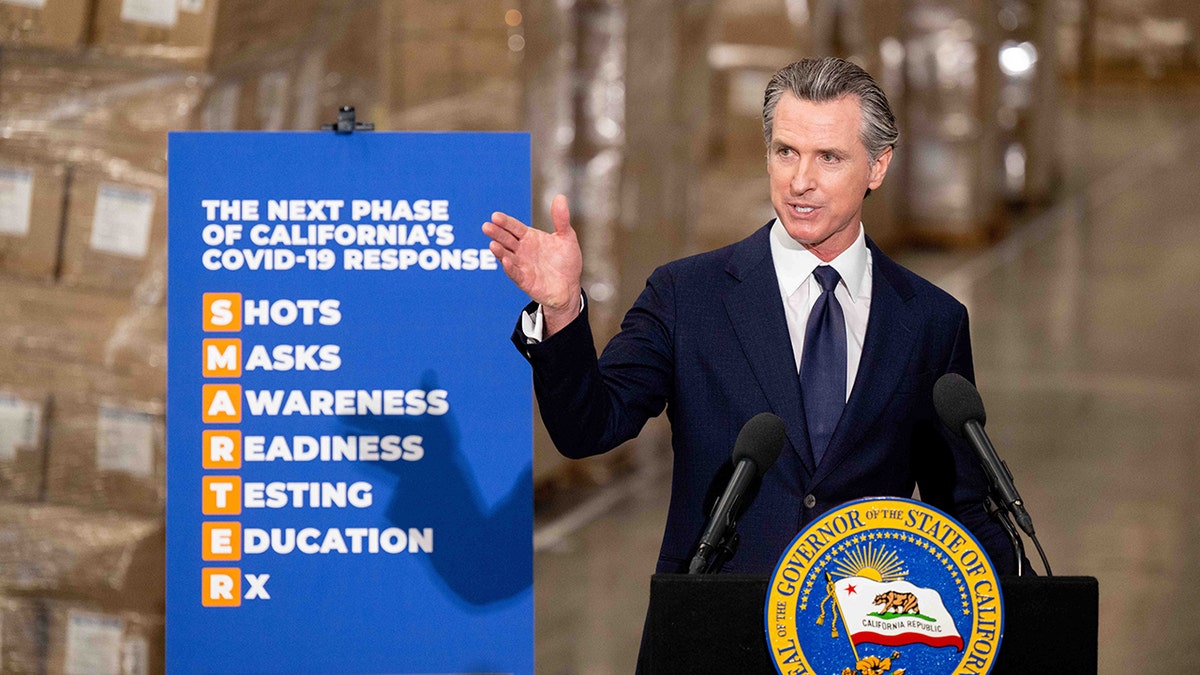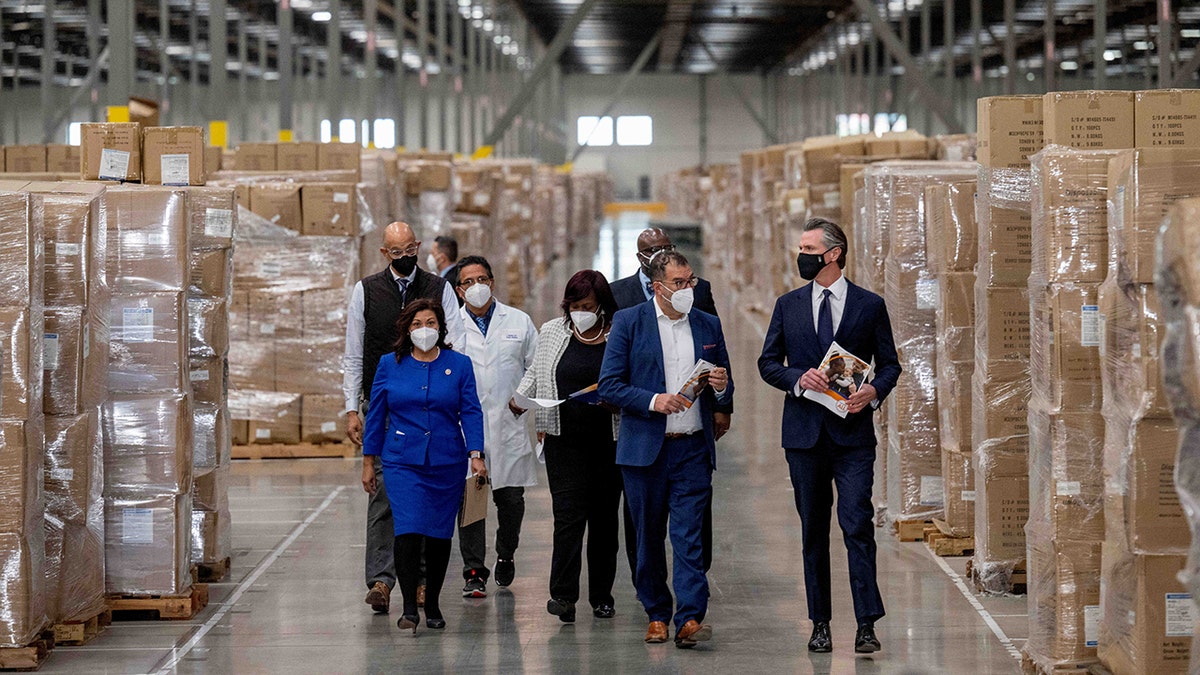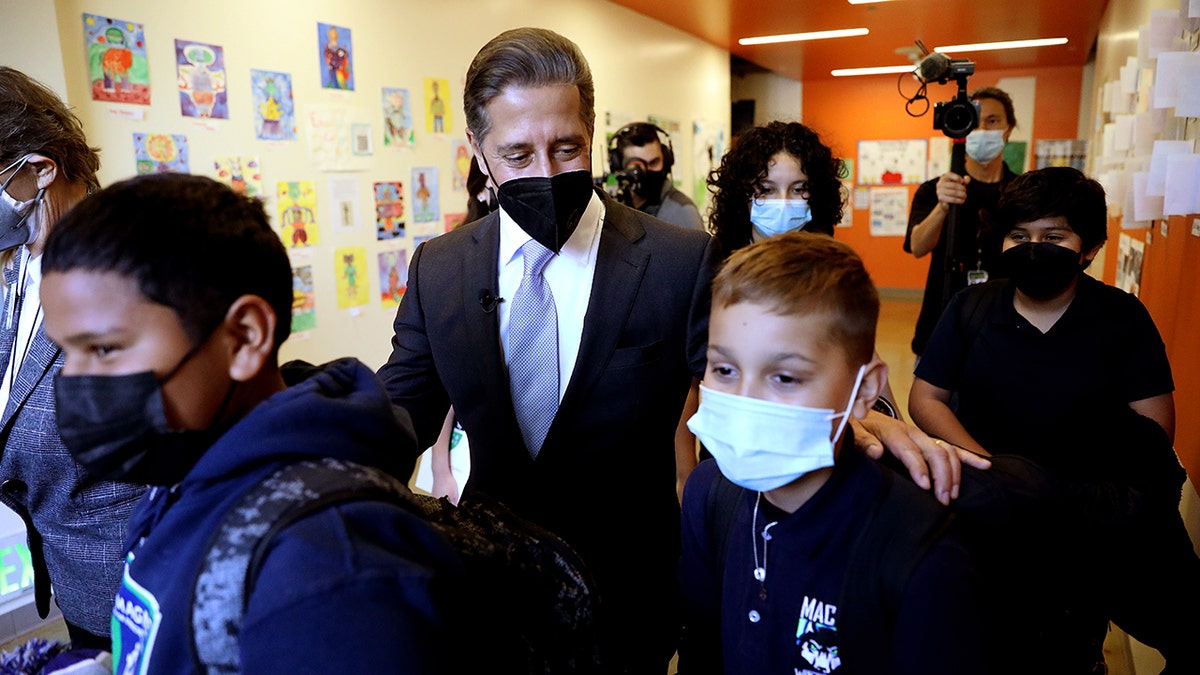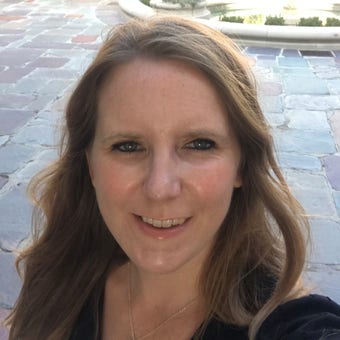Fox News Flash top headlines for February 16
Fox News Flash top headlines are here. Check out what's clicking on Foxnews.com.
California Gov. Gavin Newsom outlined the state’s plan Thursday to formally shift to an "endemic" approach to learn to "live with" the coronavirus.
The state is the first to officially make a blueprint for a waning virus nearly two years after a pandemic was declared by the World Health Organization and it will eschew lockdowns and mask mandates in favor of prevention and quick reaction to surges. The school mask mandate will remain in place for now. An announcement on Feb. 28 will let parents know when students will be able to remove them.
California lifted its indoor mask mandate on Wednesday, although mandates remain in some counties.

Gov. Gavin Newsom announces the next phase of Californias COVID-19 response called SMARTER, during a press conference at the UPS Healthcare warehouse in Fontana on Thursday, Feb. 17, 2022. (Photo by Watchara Phomicinda/MediaNews Group/The Press-Enterprise via Getty Images) (Photo by Watchara Phomicinda/MediaNews Group/The Press-Enterprise via Getty Images)
SAN FRANCISCO LOCALS REACT TO MASK MANDATES ENDING: ‘WE CAN’T BE MASKED UP FOREVER'
"We are moving past the crisis phase into a phase where we will work to live with this virus," Newsom said during a news conference in Los Angeles Thursday. "This pandemic won’t have a defined end. There’s no finish line."

Gov. Gavin Newsom, right, walks through rows of boxed PPE with dignitaries and elected officials, as he prepares to announce the next phase of Californias COVID-19 response called SMARTER, during a press conference at the UPS Healthcare warehouse in Fontana on Thursday, Feb. 17, 2022. (Photo by Watchara Phomicinda/MediaNews Group/The Press-Enterprise via Getty Images) (Photo by Watchara Phomicinda/MediaNews Group/The Press-Enterprise via Getty Images)
An endemic is one step down from a pandemic and is characterized by manageability due to higher immunity.
The state’s approach focuses on the acronym, SMARTER - Shots, Masks, Awareness, Readiness, Testing, Education and Rx, a reference to improving treatments for COVID-19.
Billions of dollars will be spent on quickly spotting surges or new variants, adding health care workers, stockpiling tests and pushing back against misinformation.

Superintendent Alberto M. Carvalho, Los Angeles Unifed School District, shown with students as he tours Maywood Center For Enriched Studies (MaCES) Magnet school on Wednesday, Feb. 16, 2022 in Maywood, CA. (Gary Coronado / Los Angeles Times via Getty Images) (Gary Coronado / Los Angeles Times via Getty Images)
"We’re going to keep [Californians] safe and we’re going to stay on top of this," Newsom added.
Republicans were critical of the plan, with State GOP Chairwoman Jessica Millan Patterson calling Newsom's speech "an extra-large helping of word salad."
She said the governor should "follow the lead of other blue states and end his state of emergency or lift his school mask mandate." While some emergency executive orders have been lifted, dozens of others remained Thursday.
Newsom's plan sets specific goals, such as stockpiling 75 million masks, establishing the infrastructure to provide up to 200,000 vaccinations and 500,000 tests a day in the event of an outbreak, and adding 3,000 medical workers within three weeks in surge areas.
CLICK HERE TO GET THE FOX NEWS APP
If a new variant is detected, officials will try to determine within 30 days if current tests, treatments and vaccines are effective against it and the plan calls for a first-in-the-nation study of the pandemic’s direct and indirect impacts long-term on both people and communities.
California was the first state to implement a lockdown in March 2020.
The Associated Press contributed to this report.





